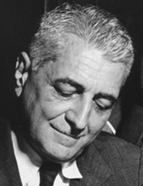

In times marked by political authoritarianism on not only one side of the Atlantic but on the other too, it was not hard to attribute an ideological tone to such a perspective and emphasize it. This was very ably done by Salazar’s regime at the beginning of the 1950s with the “complacent complicity of Gilberto Freyre”, as the historian João Medina says (“Gilberto Freyre contestado” [Gilberto Freyre Contested] , 2000, p. 50). Invited by the Portuguese Estado Novo to visit the colonies, Freyre travelled between August 1951 and February 1952 to Guinea, Cape Verde, Angola, Mozambique and India as well as around the metropole itself, returning to Apipucos with “his eyes full of Portugal” and two books soon to be written, Um brasileiro em terras portuguesas [A Brazilian in Portuguese Lands] and Aventura e rotina [Adventure and Routine], both published in 1953. In both, we find the basis of “a possible Lusotropicology”, which would be, as he says in the preface to Um brasileiro..., “the systematic study of a whole series or a whole interconnected set of adaptations made by the Portuguese to the tropics and of the tropics, not to the imperial yoke but to the very special trans-European vocation of the Portuguese people. Not only trans-European: specifically tropical”. From Lusotropicology to Lusotropicalism was but a step and, to quote Medina once again (p. 61), “from that time on the propaganda machine of the Portuguese regime would continue capitalizing on Freyre’s positions for the benefit of their colonial policy”.
As usually happens with authors with a vast and rich output, Gilberto Freyre’s work has become inescapable: there is no way to avoid it when studying Brazil and its many historical links with the world (beginning, obviously, with Portugal) even though the contact is not always made directly. It was in large part thanks to the impact of Casa-grande & senzala, for example, that slavery became firmly fixed as one of the key themes, and a fertile one too, of Brazilian historiography even though, as Dain Borges observes, “the most productive strands of this national historiography are generally considered to be anti-Freyrian” (“Como e por que a escravidão voltou à consciência nacional na década de 30” [How and why slavery returned to national consciousness in the 1930s], 2003, p. 206). Freyre’s merit in this case lay in bringing back under the spotlight the influential presence, broadly speaking, of the slave in the life of the colony and, afterwards, in the life of the independent country, a subject that suggestively disappeared from intellectual and political debates following the abolition of slavery in 1888. By doing this, and above all by doing it in the way in which he did so, “he opened the way to the modern historical understanding of the Brazilian past, insisting on the centrality of slavery to the formation of Brazilian society” (idem, p. 217).
